Nominations for the Pride in Law Award 2022 have now opened.
The Pride in Law Award recognises an individual who has demonstrated commitment to addressing LGBTIQ+ inclusion within the legal profession.
This award encourages and rewards advocacy for change within workplaces, through academia, the legal and/or social systems.
QLS Proctor discussed the importance of advocacy and inclusion of the LGBTIQ+ community within the legal profession with last year’s Pride in Law award recipient, Emile McPhee. Emile, a Special Counsel in McCullough Robertson’s Banking & Finance and Property teams, is an actively member of McColour, the firms LGBTIQ+ initiative.
Q: Why do you feel fostering a culture of diversity and inclusion within the legal profession is so important?
Emile: Firstly, it’s just the right thing to do – the more diverse we are, the more we can achieve. And having a culture of inclusion is fundamentally important to achieving diverse workforces.
The more diverse we are, the better we can represent our clients and community. This is becoming more pronounced with the ‘war for talent’ (both attracting and retaining talent at individual organisations, and the profession as a whole – and we need to keep up with these changes to ensure the legal profession is one where talented people want to build their career.
At every interaction these days we get asked questions about these initiatives and how we’re living them, so it’s clearly important.
It’s also so important on a personal level. We spend so much of our lives at our career and participating in the broader profession, so we need to be able to be authentic in that space. Everyone is diverse in some way or another, and so fostering a culture of diversity and inclusion is a way to allow every single person to bring their whole selves to work.
Q: What role do you believe the Pride in Law Award plays in helping advocate for positive change within workplaces, through academia, legal and/or social systems?
Emile: The Pride in Law Award is a great opportunity to celebrate achievement, as well as the hard work that goes into it.
It also provides an opportunity to showcase some of this and highlight what is being done in the industry, and I would like to think it helps in driving others to push for change wherever they are.
For those in the profession, it’s a chance to share in successes and the work we’re all doing. For those in the broader community, it’s a chance to show that the legal profession isn’t what it once was and we are actually recognising and celebrating diversity.
Q: What do you feel is the greatest challenge faced by those wanting to raise awareness and advocate for LGBTIQ+ inclusion within the legal profession?
Emile: In days gone by, it certainly would have been homophobia (and all the other phobias). While that’s certainly not been eradicated, I think the greatest challenge these days is finding the space and effectively getting engagement.
There are many, many diversities and initiatives to focus on, which is a wonderful thing – but the downside to this is making sure each can be promoted and have its space. Figuring that out is a journey that each person and organisation needs to balance for themselves, but it’s an important one.
Recently, it’s been amazing to see growing recognition on the intersections between diversity – for example, Pride in Law and Indigenous Lawyers Association Qld partnering for an amazing ‘Journeys to Reconciliation’ event at Birrunga Gallery. These types of collaborations help to support multiple initiatives, and can start to unpack issues on a much deeper level.
Q: What is something legal professionals and practices can do to create a more supportive environment for their LGBTIQ+ colleagues and clients?
Emile: Never underestimate the power of visible signs of ‘allyship’ and support. These can be really small gestures (a rainbow poster or sticker, a post about a day of recognition or celebration, or including pronouns in emails) or much bigger (sponsoring or participating in community events, taking part in national scorecards), but they’re so important in creating a safe and supportive environment.
Because they can be quite small, I think they can often be overlooked or disregarded, but for someone (colleagues or clients) who are feeling unsure, they can make a world of difference and help to overcome the initial fear or reluctance that may be present.
At McCullough Robertson, we recently introduced an option for pronouns on email signatures, and it’s been fantastic to see the uptake on that.
But what was really interesting was the journey to see where else we used genders and whether we really needed to. For example, ‘Sir/Madam’ in correspondence, ‘one gender includes the other’ in documents (we’ve thankfully long since moved away from always using the male in documents) and ingrained (or perhaps more likely, forgotten) concepts of a ‘mum and dad’ or ‘husband and wife’ in leave policies.
While it’s important to practise what you preach, I’d recommend that everyone have a look at their own templates and policies and see what message they might be unintentionally sending.
From there, it’s really about each person and organisation finding what feels natural and right for them – there’s no point trying to fit a mould or adopt some standard practice (though it can certainly help in the first part of the journey); after all, we all have many diversities.
Q: Is there anything you would like to add?
Emile: Be open and curious – read a post about diversity, head along to an event, ask a question, get involved in the community.
None of us have (or can have) all the answers here, so it’s important to recognise that this is and always will be a journey and all we can do is try our best to be receptive to new ideas.
And take this at your own pace – for some, just reading an article might be it, for others it might be joining a community organisation like the LGBTI Legal Service or Pride in Law – there’s no right or wrong there, but anything you do will bring reward and help make the profession a more diverse and inclusive place.
If you know a colleague who has demonstrated commitment to addressing LGBTIQ+ inclusion within the legal profession, you can nominate them for this year’s Pride in Law Award.
Kaitlyn Meehan is a member of the Queensland Law Society Membership and Engagement team.


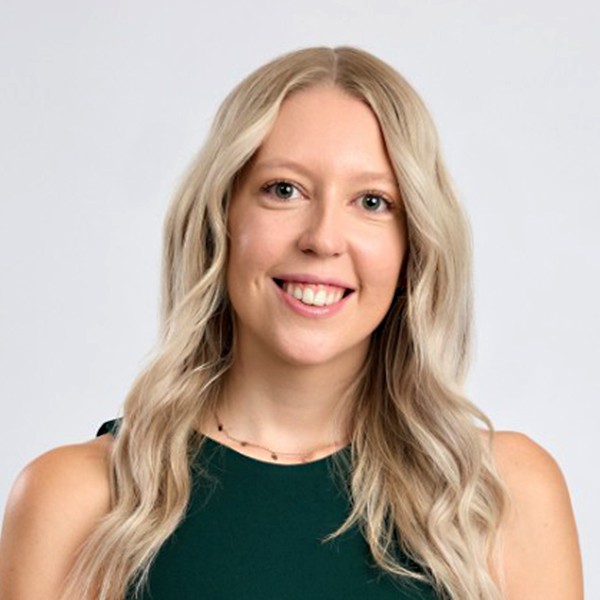
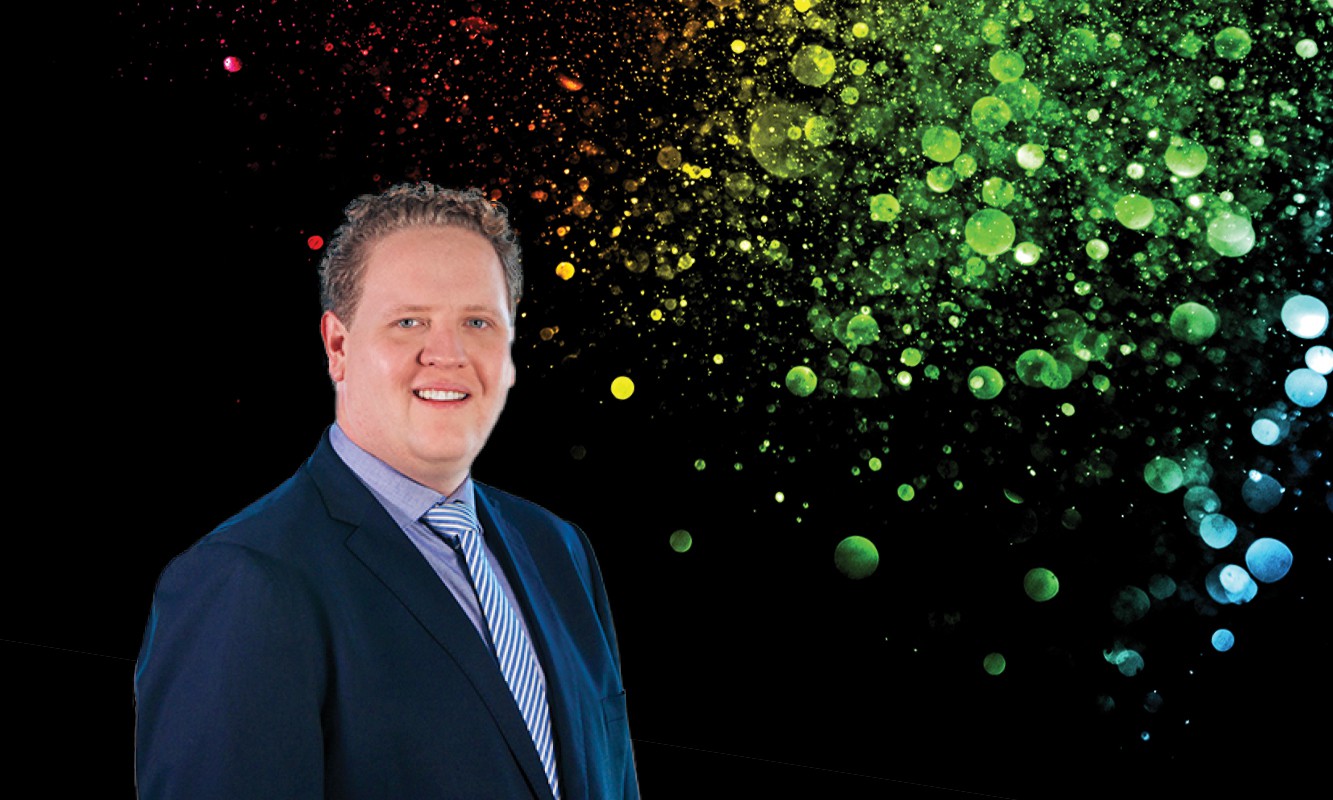



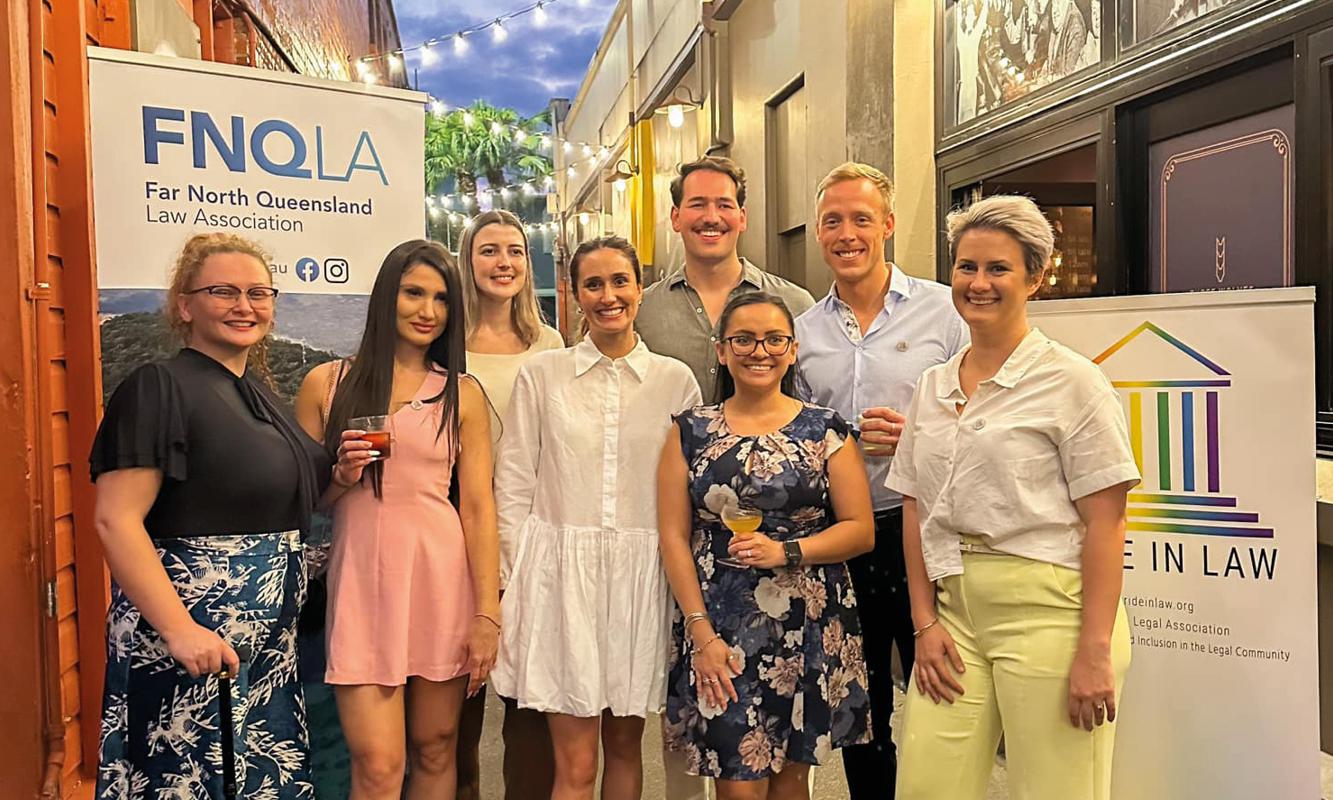
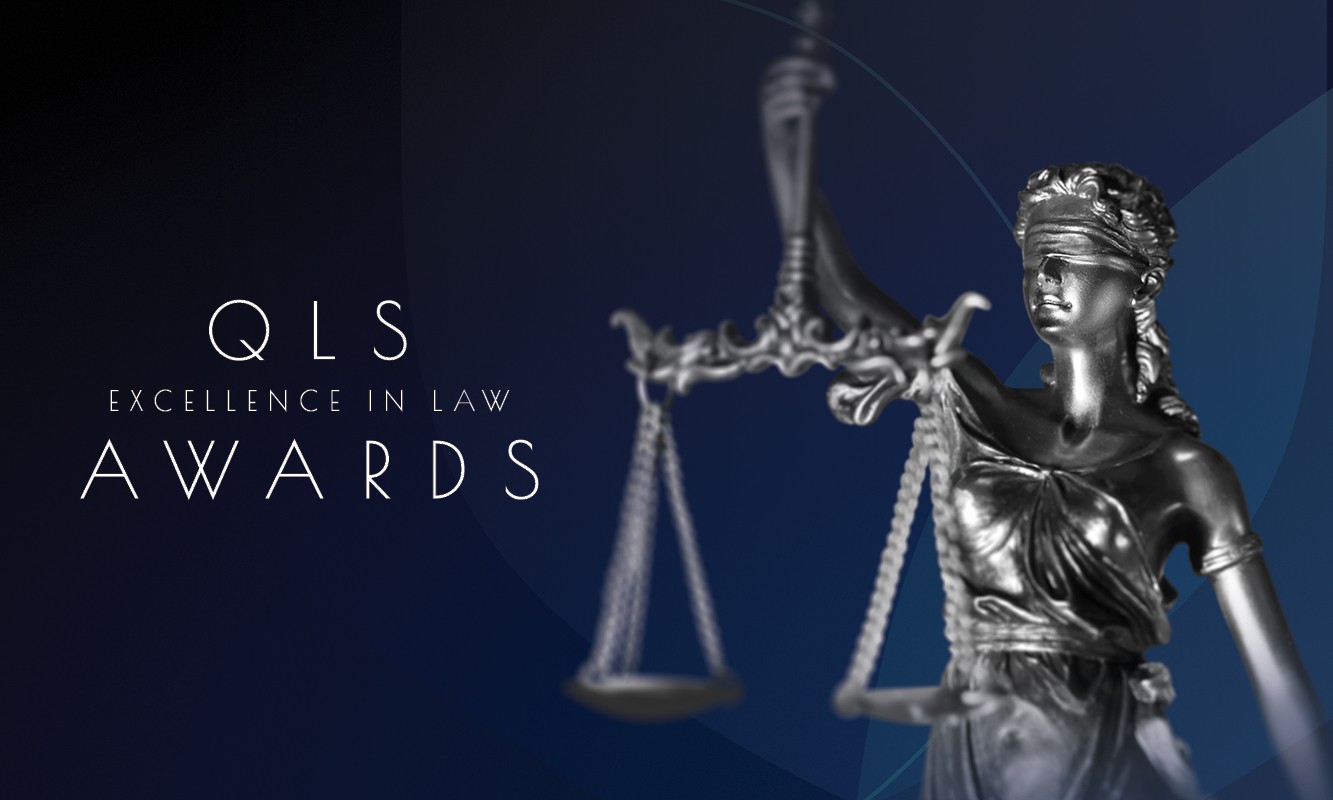
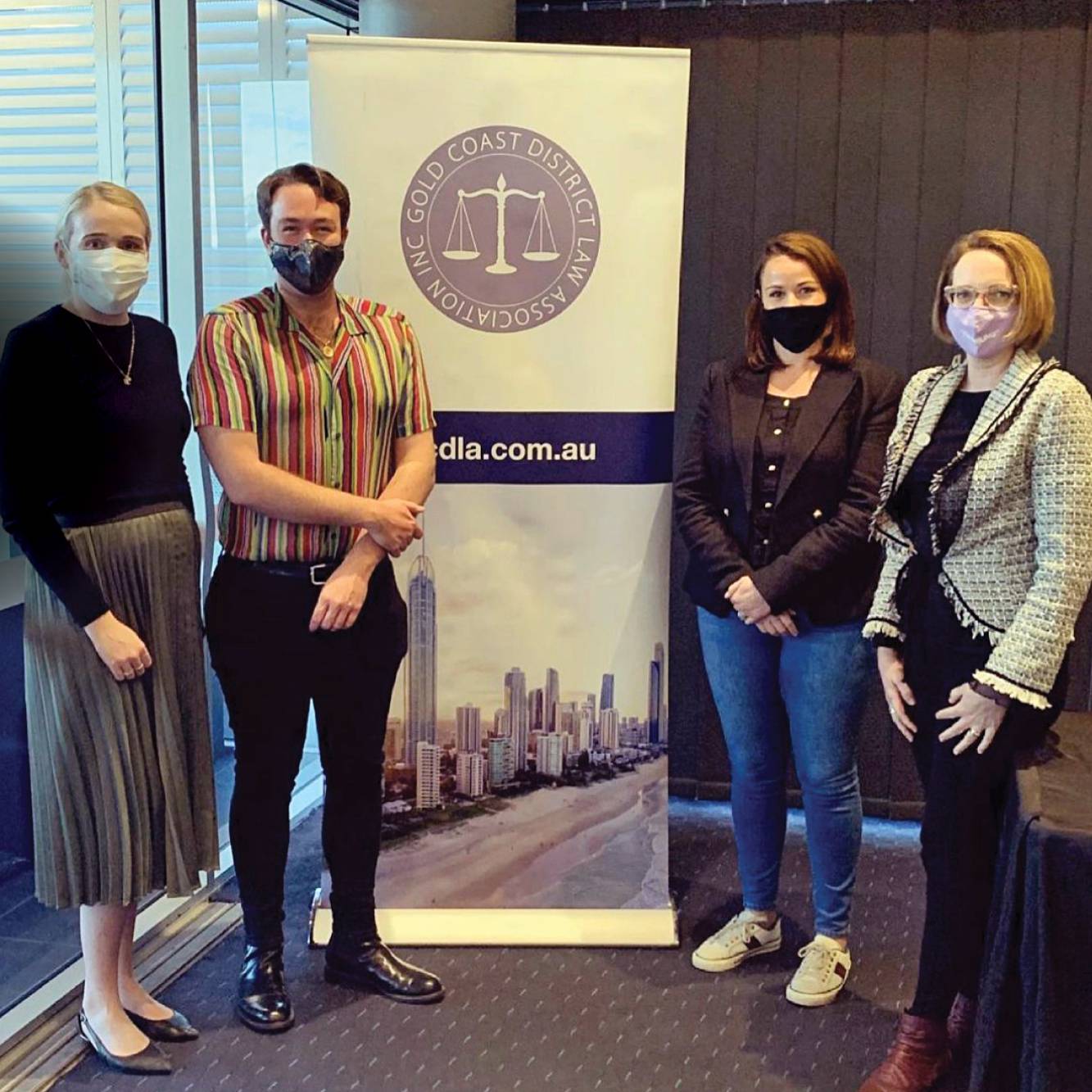
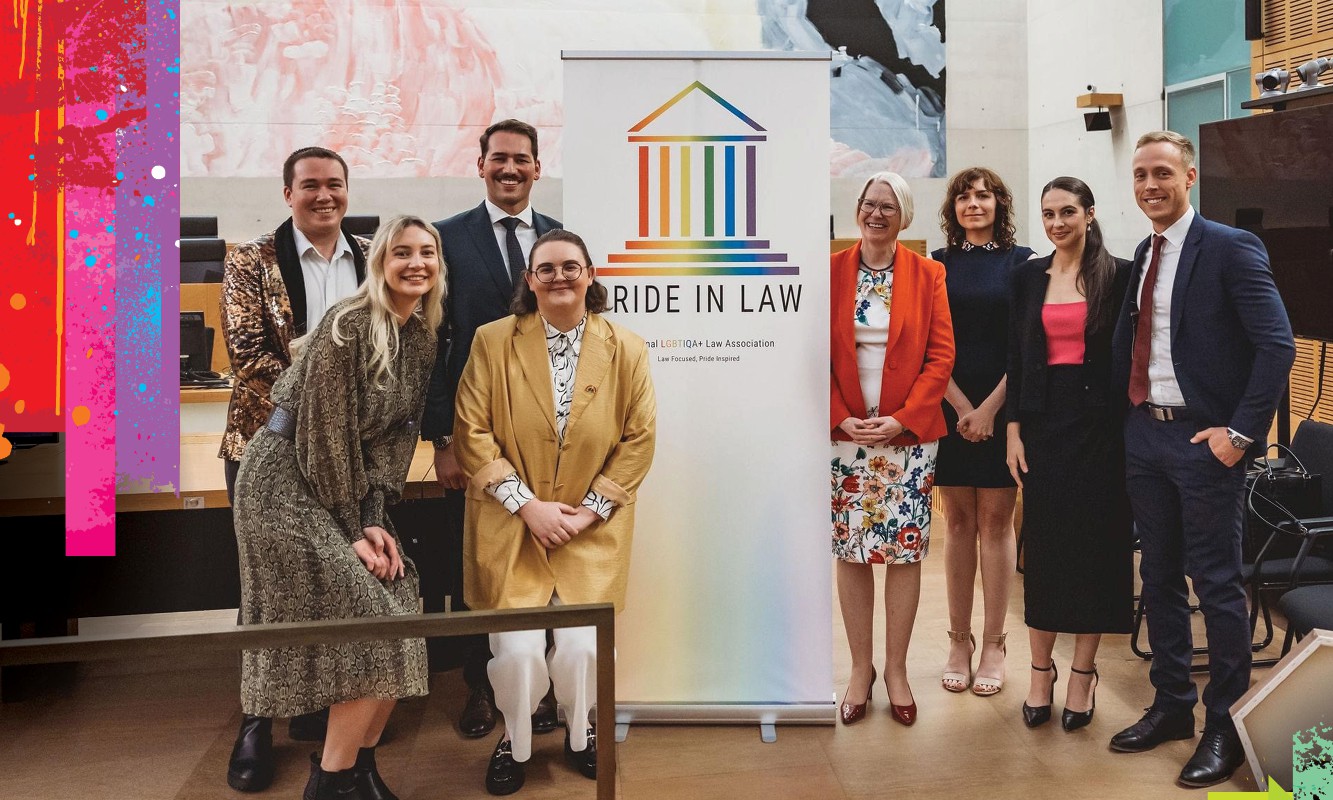
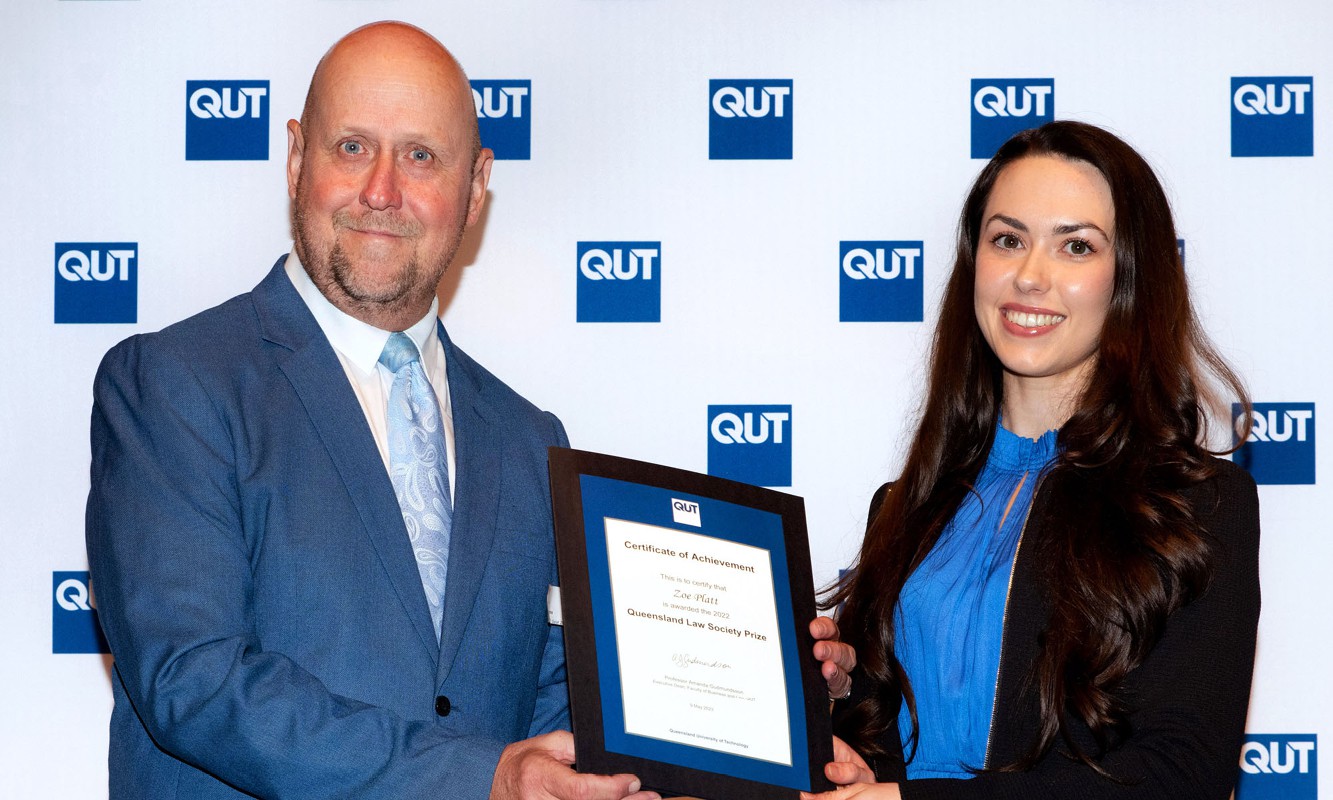

Share this article